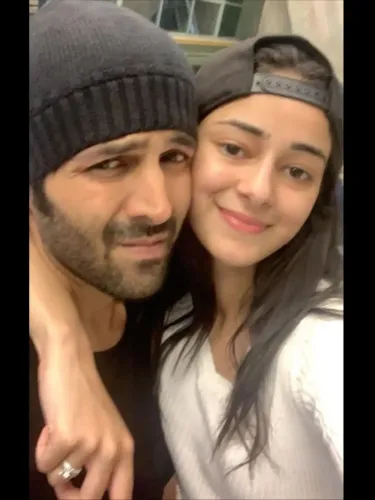Is Bhumi Pednekar Advocating for Stray Dogs? The Indian Pariah Dog's Legacy of 4,500 Years

Synopsis
Key Takeaways
- Bhumi Pednekar highlights the plight of stray dogs in India.
- The Indian Pariah dog has a rich history of cohabitation with humans.
- Empathy and kindness are crucial for animal welfare.
- Advocacy for better reforms is necessary.
- Community involvement is key in addressing stray dog issues.
Mumbai, Aug 13 (NationPress) Bollywood actress Bhumi Pednekar, who recently appeared in the streaming series ‘The Royals’, has voiced her concerns regarding dog confinement and the recent ruling from the Supreme Court.
On Wednesday, the actress shared a collection of images and videos featuring her beloved dog, Bruno, on Instagram. In her heartfelt caption, she recounted the story of her furry companion and how he entered her life.
She expressed, “My Bruno baba came into our lives when he was just 4 months old. When the amazing team at @yodamumbai rescued him, he was injured and distressed — with a dislocated jaw and a burnt tail — yet his spirit was that of a warrior. All this was inflicted by young children who took pleasure in tormenting an innocent creature. It's not their fault; it's ours for not nurturing empathy, coexistence, and kindness. Bruno is a wise soul. He possesses intelligence, kindness, playfulness, nurturing qualities, protective instincts, yet remains gentle. With the recent Supreme Court ruling permitting the collection of 300,000 dogs in Delhi for sheltering, I cannot help but think of Bruno and all the Indian Pariah dogs who know only the streets as their home.”
The actress emphasized that for many years, street dog feeders have been their advocates, providing food, care for injuries, sterilization, and vaccinations from their own funds. She argued that instead of criminalizing their presence or punishing those who care for them, we should focus on establishing stronger reforms and systems, including mass sterilization initiatives.
She highlighted the importance of regular vaccination programs, community-led feeding efforts, and monitoring as the path forward.
She further stated, “The Indian Pariah dog has shared our journey for over 4,500 years. They are woven into our cultural and spiritual fabric, mentioned in the Rig Veda, the Mahabharata, and the Upanishads. In our ancient texts, they symbolize loyalty, dharma, spiritual companionship, and protection.”
“They continue to represent these values today. Removing them en masse and stripping them of the only life they know will not address the underlying issues; it will only result in further cruelty and displacement. May there be empathy. May there be peace. May justice prevail,” she concluded.









